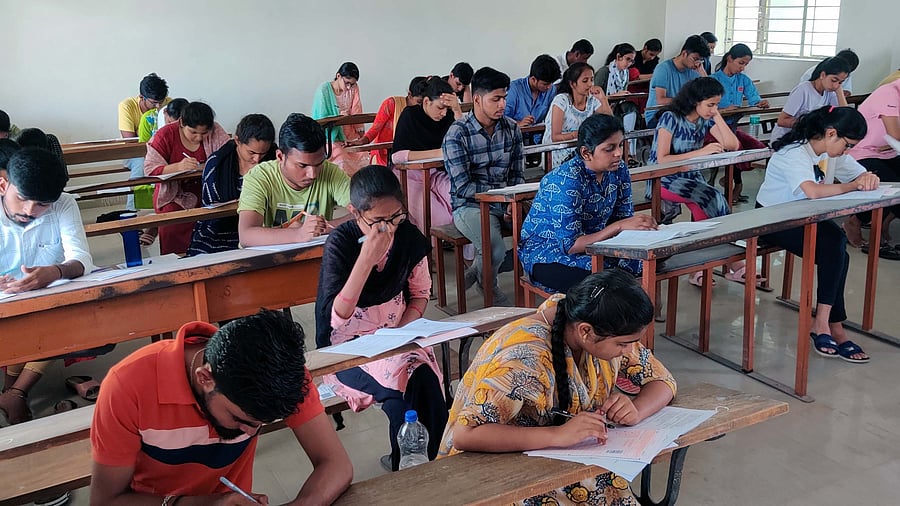
Representative Image.
While every student aspires to study at the top colleges or universities in the country, not everyone may achieve that for various reasons. Apart from hard work and determination, many other factors, like proper guidance and focus on core areas, play a role in getting a good score. However, missing one chance doesn’t mean the game is over.
The National Testing Agency (NTA) announced the second Common University Entrance Test (CUET) exam results last month, leaving students excited and concerned about their admissions into universities and colleges. Many are eager to secure a spot in their preferred college or course.
According to education experts, those who scored less than 80% need not lose hope. There are several alternative options available to them. There are many other choices for others as well.
Open universities
This alternative is for students who have not performed well in their board exams or the CUET. Spending significant money on private institutes’ tuition fees is unnecessary. Open schools/colleges offer a good option to avoid the high cut-off marks and rising tuition fees.
Some state universities also have distance learning programmes, where students are not required to attend regular lectures or classes. They only need to appear for exams and complete assignments or projects within a flexible time frame.
Additionally, students interested in studying at central universities can opt for their distance-learning schools. These options can also cater to various learners who may find it challenging to attend traditional on-campus programmes.
Competitive exams
Another option for students who have scored less is to appear for competitive exams specific to their desired fields or courses. For example, engineering aspirants can take the JEE exam, while those interested in architecture can consider the Architecture Aptitude Test.
There are also exams for Chartered Accountancy, hotel management (NCHMCT), law (CLAT, AILET), design (NIEFT, AIEED, National Aptitude Test in Architecture, National Institute of Design Admissions), and medical studies.
Students aspiring to become teachers can apply for BEd programmes various colleges and universities offer, including IGNOU. Aspiring civil servants can prepare for UPSC, bank PO exams, or exams for defence services.
Higher studies abroad
Students can also consider pursuing higher studies abroad. Although there are challenges, such as high expenses and limited time, studying abroad is worth considering. Even if immediate admission is not possible, exploring options for future intake can be beneficial.
Students can research countries like the UK, which offer foundation years and pathway programs to universities. Foreign exams like SAT and ACT can also be used for eligibility in the United States, while IELTS holds importance for countries like Australia and the UK.
Taking a gap year
Even if none of these options works out, panic is unnecessary. Taking a gap year and trying again for the desired course or college is a better choice than settling for something they are not interested in. Students can gain valuable life experiences during the gap year and make well-informed decisions later. It can allow students to reevaluate their performance, identify areas for improvement, and prepare for entrance exams in a focused and disciplined manner.
Students can also consider studying at private universities or going for other entrance exams at the national level, as per their study areas, aspirations, or qualifications. Private universities offer diverse undergraduate, postgraduate, and doctoral programs across various disciplines. So it is wise to keep your options open for private universities outside the CUET ambit.
(The author is an associate professor at a Jaipur-based university)